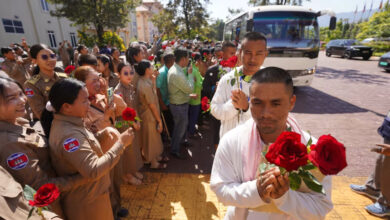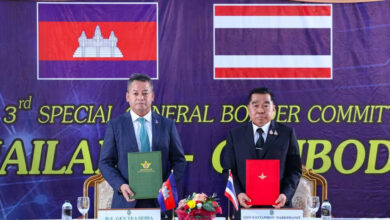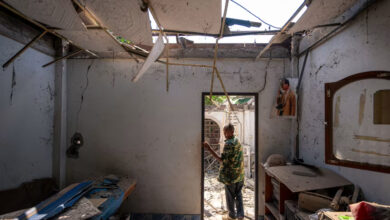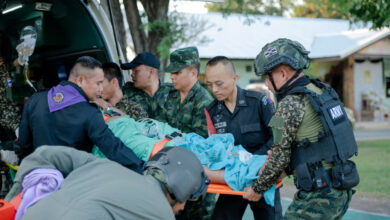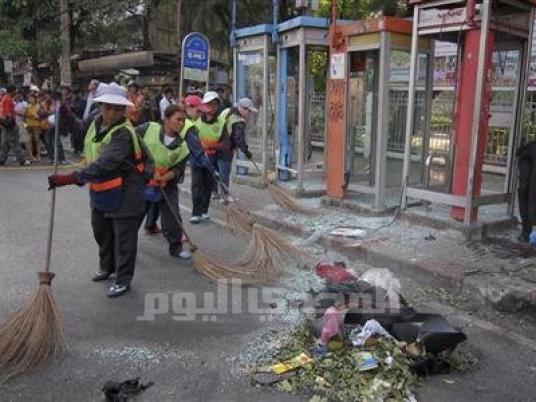
A truck bomb in an underground carpark wounded seven people on the Thai holiday island of Koh Samui on Friday night, in an incident which was likely to raise fears that Muslim rebels in the deep south could extend their campaign to tourist areas.
All of the wounded, who included a 12-year-old Thai-Italian girl, were later discharged from hospital with minor injuries, a hospital official told Reuters on Saturday.
The bomb exploded late on Friday, the eve of the new year holidays in predominantly Buddhist Thailand. It had been planted in a pick-up truck parked at Central Festival Samui shopping mall, Banpot Phunpian, spokesman for the Internal Security Operations Command, told reporters.
He said the truck used in the attack was stolen last month from Yala province in southern Thailand, where a low-level insurgency has claimed more than 6,000 lives since January 2004 when resistance to Buddhist rule resurfaced violently.
Banpot said it was possible that insurgents from the south, experienced in assembling car bombs, were behind the blast.
The military government, which seized power last year in a coup, has said that peace in the Muslim-dominated south was an urgent national priority, but despite that pledge talks aimed at ending the insurgency have stalled.
On Saturday, masked gunmen shot dead four men and wounded two others in Pattani, another of the three southern provinces that have been under martial law for a decade. The incident was under investigation, police said.
The government's deputy spokesman Colonel Sansern Kaewkamnerd, however, did not link the Koh Samui bomb to the insurgency, but instead told reporters it could be connected to earlier blasts in the capital, Bangkok. He did not elaborate.
In February, a small bomb went off outside a court in Bangkok, causing minor damage. It followed similar small, twin explosions outside a shopping mall in the capital earlier that month.
Those blasts were widely believed by the public to signal dissatisfaction with military rule, rather than any action by the Muslim rebels, as the first attacks occurred just over a week after a junta-appointed assembly banned ousted Prime Minister Yingluck Shinawatra from politics for five years.
The blast on one of Thailand's most well-known islands is another blow to a tourist industry still struggling to recover from the impact of months of political turmoil that culminated in the coup.
Prime Minister Prayuth Chan-ocha, the former army chief who heads the junta, has instructed government agencies to do everything in their power to protect tourists during the Thai new year festival, Sansern said.
Apichart Boonsriroj, the police commander of mainland Surat Thani province that administers Koh Samui, said security would be beefed up in the province.
The water festival from April 13-15 is expected to attract half a million foreign tourists.
Tourism accounts for about 10 percent of the struggling economy, and the junta wants to increase visitors to bolster growth after political unrest took the economy to the brink of recession in 2014.

